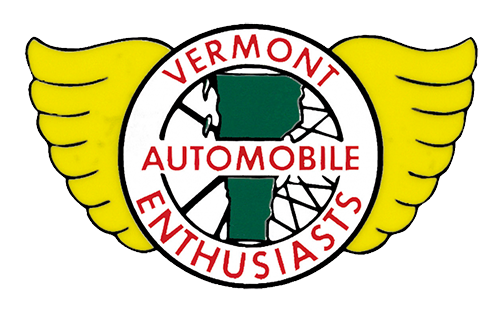Are you aware of the non ZDDP engine oil currently on the market, and the potential consequences for the older car market? The EPA has forced the reduction or elimination of ZDDP (Zinc Dialkyl-Dithio-Phosphate) from engine oil. ZDDP is curtail for the proper lubrication of flat tappet camshaft engines. Not a problem on modern engines with roller type cam and tappets, but older engines with flat tappets need this layer of protection due to the high pressure and “scuffing” on the tappet. The reduction of these chemicals in supplied oil was based on the fact that zinc, manganese and/or phosphates reduce the effectiveness and eventually damage catalytic converters and introduce minute amounts of pollutants into our atmosphere. In the past there have been horror stories that have scared old car enthusiasts into believing our beloved cars were being destroyed before our very eyes. Remember when we were told that unleaded gas would destroy our valves? It didn’t. It is an undeniable fact that todays engine oil is vastly superior to oils from even several decades ago, and modern type oil has successfully protected engines for hundreds of thousands of trouble free miles. However, the newest engine oils do not have the ZDDP needed for proper tappet and camshaft protection. While they work very well in modern engines, there is a problem with the older, flat tappet engines. In my opinion, there is just too much undeniable science and hard evidence to tell me that this one is one we need to be concerned about. This problem can be easily and inexpensively solved. If nothing else, you can make a choice to buy inexpensive piece of mind with your selection before you pour it in to your crankcase. What can we do? Diesel engine oil still has the ZDDP additives, as do several other oils, including Castrol HD off road, Redline (synthetic) or Valvoline VR1. I have been using Shell Rotella for years with no complaints. We use to use Castrol 20/50 in the MG and Triumph engines, but now use Rotella. It seems to be the oil of choice for the Dodge Cummins Turbo Diesel crowd. These are the people who hop their trucks with larger turbo chargers and performance chips, then use their trucks to haul heavy trailers across the country and back. They are man-aging to easily put over a million trouble free miles on these engines. That is enough proof for me that this oil has proven its worth. Still want to use your favorite oil? Use General Motors (Chevrolet): EOS, their oil fortifier. Add it to your oil, it’s only about $12.00 for each oil change for an 8 ounce can. GM has been aware of this problem for years, and is pushing this product for their older, flat tappet engines. Read the label of the oil you are using, and make sure it states that it still contains the ZDDP additives our older flat tappet engines need. Want further information? There is plenty of it on the web. If you are concerned about this issue (as I feel you should be) then it would be worth your while to do some investigating on the internet. During the February meeting at Vermont Engines we should ask the boys there for their thoughts and observations on this subject.
I received this tip from Rick Reinstein. It is called the “Redi-Rad:” This device allows you to play an mp-3 or Ipod player through an AM radio!! How neat is that? Now we can listen to our tunes as we drive our antique cars with virtually no modification. The unit plugs in between the antenna plug and jack on the radio. It is available from BCE Redi-Rad Store, PO Box 180095, Delafield, WI 53018 USA Telephone #(262)-646-3363 http://www.rediscoveradio.com
Rick also asked this question:
Hi Dave, “Do you know if anyone sells a gas tank drain petcock? That would make annual draining of our crappy ethanol gas much easier prior to storage”
In “the old days” we used to fill our tank with gasoline and add a fuel stabilizer for winter storage. In the spring we would dump a can of dry gas in the tank (creating ethanol) to remove any moisture, turn the key and be on our way. Now that we have modern ethanol, draining the gas tank is another option. I know there are petcocks for motorcycle gas tanks and on diesel filters. I found no specific application for such a part for an automobile gas tank, but that does not mean there is no such product available. I will continue to look and post any findings here. Siphoning is also an option. If you do drain the tank, I would leave the gas cap off for the winter and place a sock or something over the inlet of the tank to allow moisture to vent, but also prevent anything else from going in the tank. Remember, Ethanol will dissolve older rubber hoses and components. It is possible that the ethanol can destroy part of your fuel system, and the gas can spill out due to gravity. It happened to me last year with my snow blower. The fuel line was weeping gas on to the floor. I discovered it when I smelled gas in the house and found a puddle of gas on the garage floor. When I fixed it, I found a black tarry like goop in the carburetor. If you store your car with a full tank, there is potential for a lot of gasoline to spill out. That could potentially ruin your day (or vehicle, garage, house, etc.) Something else to watch for. Keep those questions coming, send them to dasander@aol.com and I will do my best to track down the correct answers to your questions.
 Please email all inquiries to: Dave
Please email all inquiries to: Dave
or snail mail
32 Turkey Hill Road
Richmond VT 05477

Leave a Reply